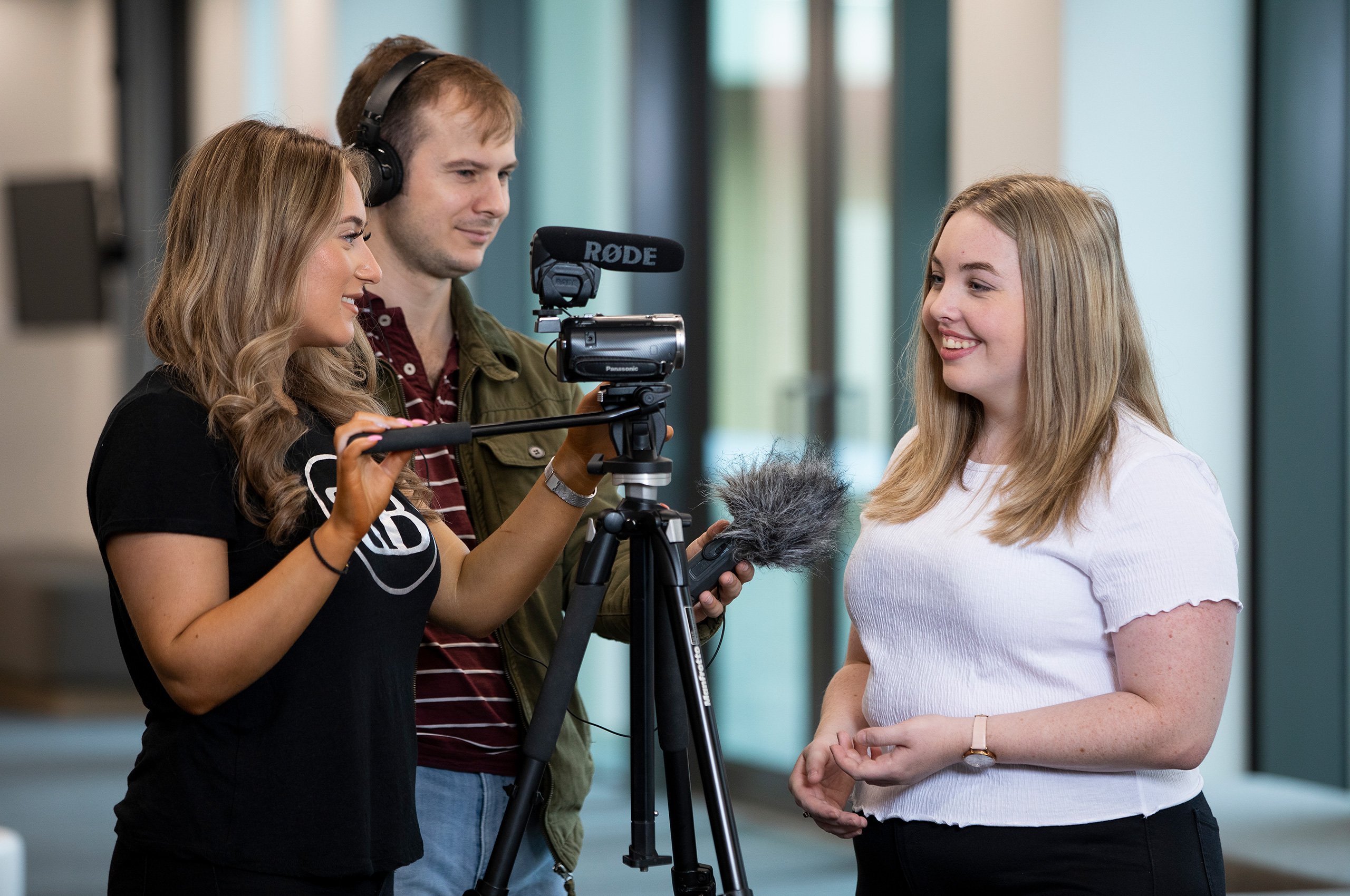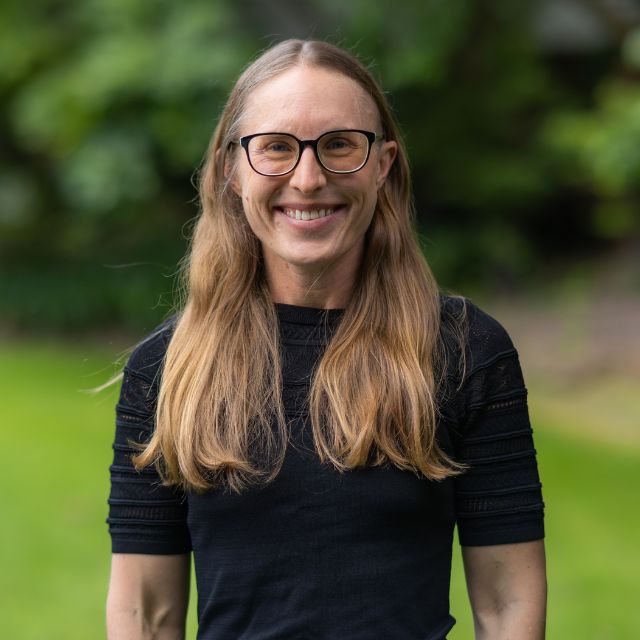About the Department of Politics, Media and Philosophy

The Department of Politics, Media and Philosophy is known for its research and teaching about power, political change, communication and ethics.
We address these issues through our courses, and our research and partnerships with government organisations, industry, universities, think tanks and community groups.
Our Department is part of the School of Humanities and Social Sciences.
We offer a range of undergraduate courses including our Bachelor of Global Studies, Bachelor of Media and Communication and Bachelor of Politics, Philosophy and Economics, as well as majors in Politics, Philosophy, and Gender, Sexuality and Diversity Studies.
At the postgraduate level, we offer supervision for Higher Degree Research candidates and host the Graduate Certificate in International Relations.
Our students are taught by academic staff whose work has real impact on public debates and policymaking. In our Media and Communication program, our staff are experienced professionals who have worked in television, radio, journalism and consulting.

We take pride in the achievements of our students, who apply the skills and knowledge they have gained at La Trobe to help address the big challenges of our time.
Supportive learning
Our courses offer pathways to careers in the public service, diplomacy and international relations, policy analysis, consultancy and advocacy, and media and communication.
Our students benefit from our flexible approach to teaching that allows them, where possible, to engage in learning at a time and place of their choosing. We offer on-campus, online and hybrid learning opportunities, in semester-long study or shorter, block-mode options.
We also offer a range of placements, internships and study abroad programs to give students the opportunity to immerse themselves in different social and cultural environments and allow them to gain valuable workplace experience.
Our Media and Communication students, for example, hone their skills through our award-winning upstart program and internships with a range of media organisations, businesses, sports clubs and community groups.
In Politics, our longstanding partnership with the Victorian Parliament gives our high-achieving students the opportunity to undertake work experience with members of the Victorian legislature.
Find out more about our courses and our distinctive student experience.
Real impact
Our staff conduct research on the future of democracy, mis- and disinformation, regional and global security, inequality, human rights, ethics and artificial intelligence.
They make contributions to parliamentary committees, advise government agencies, inform public debate and advocate for our community.
Our Higher Degree Research program gives students the opportunity to join a vibrant cohort of researchers who use robust methods to create new knowledge on power, political change, communication and ethics.
We have close links to La Trobe Asia, led by Professor of International Relations Bec Strating, which provides leadership on all aspects of La Trobe University’s engagement with Asia, including the Philippines-Australia Forum, which supports research, engagement and teaching initiatives to increase awareness of Philippine politics, culture and society.
Our research aligns with La Trobe University’s research themes: Social change and equity, Healthy people, families and communities, Sustainable food and agriculture and Resilient environments and communities.
Our research is grouped into five key areas:
Our researchers analyse a range of issues in Australian politics including the changing nature of electoral and party politics, the impact of mis- and disinformation on political campaigning and the media, the role of National Cabinet in governance, Australia’s relations with its Asian and Pacific neighbours, and the role of Indigenous Australians in the military.
Our experts on China, Indonesia, India, Russia and the broader Asia-Pacific region investigate the contours of democratic decline and growing authoritarianism, processes of identity formation among ethnic minorities, issues of maritime and regional security as well as the implications of geopolitical trends for Australia’s place in the region.
Our researchers examine political, social, and ethical issues in journalism, media production and media consumption. Projects focus on investigative journalism and undercover reporting, regulatory frameworks for mis- and disinformation, strategies to contain online hate speech and misogyny, and the social impact of sports and sports media.
Our researchers are internationally recognised experts in ethics, epistemology and logic. Projects focus on epistemological and ethical issues raised by emerging technologies including artificial intelligence and neurotechnology, the nature of different forms of knowledge, and formal models of belief revision and decision making.
Our researchers examine gender-based violence, sexualized online abuse, the role of women in local government, the economics and politics of reproductive rights, and the Women, Peace and Security Agenda.
Research centres
Our staff make key contributions to La Trobe University's institutes and research centres.
The Australian Research Centre in Sex, Health and Society conducts research and education on the social dimensions of sexuality, gender, health and human relationships. The Centre works collaboratively with other researchers, communities, community-based organisations, government and professionals to advance knowledge and promote positive change in policy, practice and people’s lives.
Find out more about the Centre.
The Care Economy Research Institute was established in 2023 by La Trobe University in recognition of the crisis facing our care sectors, and our conviction that together researchers and industry partners can make a positive difference.
Find out more about the Institute.
The Centre for Alcohol Policy Research is at the forefront of alcohol research. Its discoveries are used to inform the development of evidence-based, effective alcohol policy in Australia and internationally.
Find out more about the Centre.
The Centre for Sport and Social Impact is shaping the future of Australian sport and physical activity through research and engagement with industry and government. Its research addresses significant health and social issues including physical inactivity, social exclusion, physical illiteracy, obesity, excessive alcohol consumption and gambling. The Centre supports its research partners to develop and deliver policies, strategies and processes to address these critical social issues.
Find out more about the Centre.
The Centre for Human Security and Social Change works for inclusive social change. It works with a range of individuals, organisations and networks that are involved in social change with a particular, but not exclusive, focus on Indigenous Australia, the Pacific and Southeast Asia.
Find out more about the Institute.
